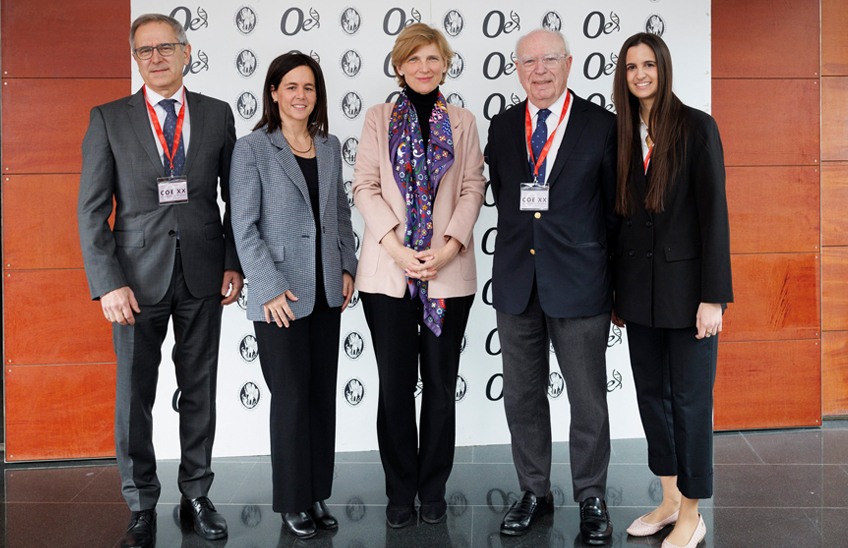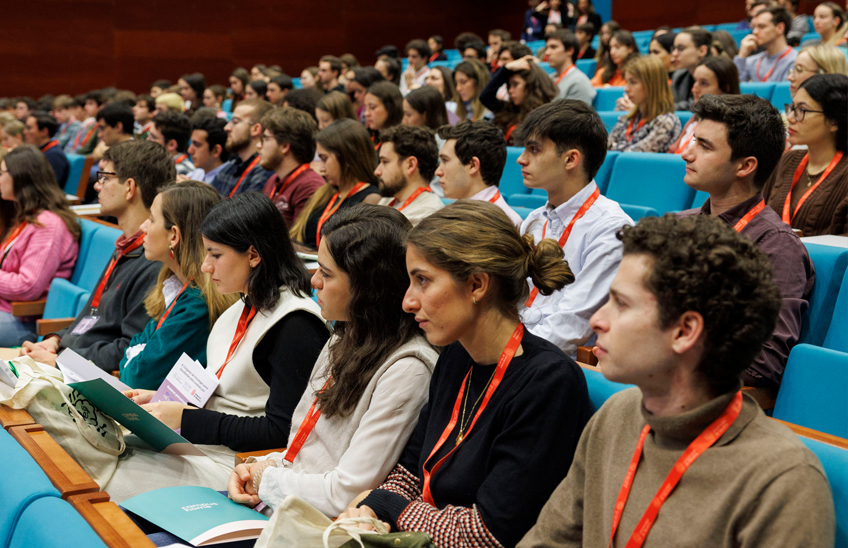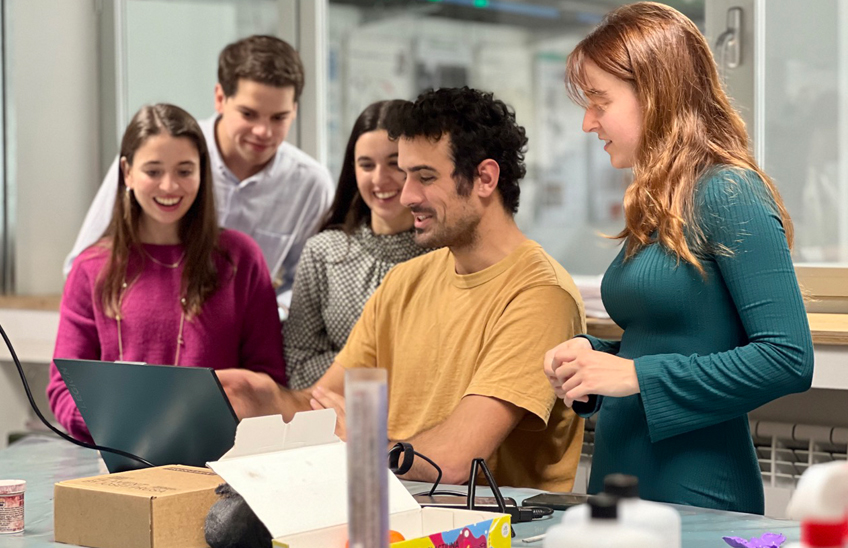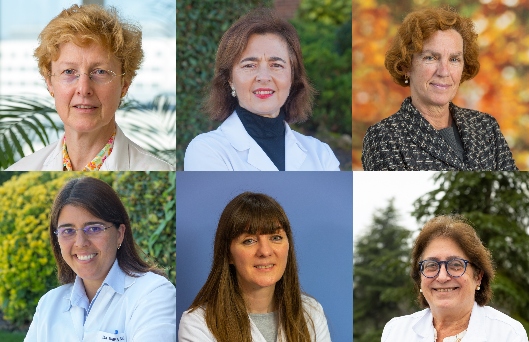An expert says Artificial Intelligence (AI) will change doctors' work but cannot replace "clinical judgment, conscience, emotions or ethics."
The president of the Royal National Academy of Medicine, Eduardo Díaz-Rubio, inaugurated the XX congress of Oncology for Students (COE) in the University

FotoManuelCastells/The inauguration of congress was attended by (from left to right) Salvador Martín Algarra, professor at School of Medicine and manager of the COE; Mar Cuadrado, vice-dean of Students at School of Medicine; María Iraburu, president of the University of Navarra; Eduardo Díaz Rubio, president of the Royal National Academy of Medicine; and María Torregrosa, student at School of Medicine and vice-president of the COE.
11 | 03 | 2024
"Artificial intelligence is a paradigm shift, its use is going to change the way in which oncologists work on a daily basis and, for sure, it is a step of extraordinary magnitude for patients". This was stated at the University of Navarra by Eduardo Díaz-Rubio, Professor Emeritus of Medical Oncology at the Complutense University and president of the Royal National Academy of Medicine, during the inauguration of the congress Oncology for Students (COE) organized by the students of the Schools biomedical sciences. The event, which has celebrated its 20th edition, addressed the application of artificial intelligence to clinical oncology.
The opening ceremony was attended by María Iraburu, president of the University of Navarra; Mar Cuadrado, Vice-Dean of Students of the University of Navarra; and Mar Cuadrado, Vice-Dean of Students of the University of Navarra. School of MedicineSalvador Martín Algarra, professor of the School of Medicine and manager of the COE; and María Torregrosa, student of the School of Medicine and vice-president of the COE XX.
In his speech, Professor Eduardo Díaz-Rubio analyzed the application of AI to medicine, as a new educational and healthcare resource . He pointed out that artificial intelligence can help in the prediction of results, new treatments, appropriate doses, early detection or treatments with fewer side effects. "We must seek the complementarity of the specific tasks that have to do with technology and artificial intelligence with the functions and values that the physician has to preserve, such as clinical judgment, conscience, emotions or ethics."
Also speaking at congress were Dr. Idoia Ochoa, from the area of Biotechnology and Medicine of the School of Engineering-Tecnun of the University of Navarra; Dr. Nuria Ribelles, Head of Section of the Medical Oncology Service of the Hospital Universitario Virgen de la Victoria in Malaga and team member who has promoted the application of artificial intelligence models to improve the attention, treatment and care of cancer patients; Dr. Marina Álvarez, Minister of Health of the board of Andalusia between 2017-2019 and international leader in breast cancer; and Dr. Ruben Armañanzas, biomedical engineer and researcher of the Institute of Science of the data and IA DATAI of the University of Navarra.
More than 230 students from 19 universities

The congress on Oncology for Students brought together at the University of Navarra the following students more than 230 students from 19 Spanish universities. The main goal of this yearly meeting is to know everything related to the research, prevention, diagnosis, treatment and care of cancer from a scientific, human and social perspective..
The congress included workshops and round tables that will train participants in different issues, from how to deal with grief and communication of bad news; family cancer diagnosis, music therapy in oncology, emotional management techniques in oncology patients to oncological emergencies.




